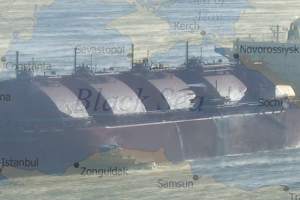TAPI pipeline – is the Iran nuclear deal a threat or an opportunity?
By Rohullah Osmani
September 18th, 2015, The CACI Analyst
After several years of uncertainty, a hope for a breakthrough has emerged for a critical energy project in South-Central Asia. On August 6, 2015, the 22nd TAPI Steering Committee approved Turkmenistan’s Turkmengaz as the consortium leader to oversee efforts in constructing, financing and operating the 1,600 kilometer natural gas pipeline. Achieving this milestone suggests a very important development for TAPI. Turkmenistan is taking a firmer lead in the project after talks with a French investor stalled, and also after the recent agreement over Iran’s nuclear program. This suggests Ashgabat is speeding up the project over fears that Iranian gas might flood back on to the market.
Turkmen state company to lead consortium for TAPI pipeline project
By Tavus Rejepova (09/02/2015 issue of the CACI Analyst)
On August 6, the participants of the 22nd Steering Committee meeting of the Turkmenistan-Afghanistan-Pakistan-India (TAPI) gas pipeline project unanimously agreed in Ashgabat that Turkmenistan’s State Company TurkmenGas will lead the TAPI Ltd. consortium, a pipeline company that will design, build, own and operate the TAPI Pipeline. After the much awaited selection of a possible consortium leader among interested international oil and gas companies, this move paves the way to begin work on the project.
Iran's reentry on gas markets and challenges to TAPI
By Najia Badykova (09/02/2015 issue of the CACI Analyst)
In anticipation of the lifting of sanctions on Iran and the country’s resulting potential to become a major energy player in Eurasia, Tehran, its neighbors, and European countries are evaluating their options. Iran’s eagerness to enter the European and South Asian gas markets will immediately affect the Caspian Sea Basin, already subjected to intense rivalry over pipeline routes, where most prominently Turkmenistan targets the same markets. Iran cannot in the short term supply gas in the quantities needed to diversify European supply, but seeks to secure its participation in the European market by offering its territory for Turkmen gas deliveries to Europe. Iran is much better positioned towards South Asia, where it can export its surplus gas to Pakistan and India leaving Turkmen gas less competitive in those markets.
AGRI's progress advances Brussels' and Baku's energy agendas
By Micha’el Tanchum (08/07/2015 issue of the CACI Analyst)
On June 24, 2015, Azerbaijan, Georgia and Romania signed a declaration committing to advance the Azerbaijan-Georgia-Romania Interconnector (AGRI) project that will transport Azerbaijani LNG across the Black Sea to Romania for re-gasification and sale in European markets. The project creates a theoretical possibility for Turkmen LNG to reach Europe through a modified use of the system. Of great geopolitical consequence, the option requires a commensurate amount of political will to implement. Independent of potential Turkmen gas exports, the furtherance of the AGRI project constitutes an important advance for Azerbaijan’s strategic policy to develop European Union stakeholders in its political sovereignty.

CACI Analyst, March 18, 2015
CACI Analyst, March 18, 2015 (.pdf)
Contents
Analytical Articles
TURKMENISTAN POISED FOR TAPI BREAKTHROUGH, by Micha'el Tanchum
NEMTSOV'S ASSASINATION AND THE CHECHEN TRACE, by Emil Souleimanov
RUSSIA TO STRIP ABKHAZIA AND SOUTH OSSETIA OF THEIR LIMITED SOVEREIGNTY, by Valeriy Dzutsev
ARMENIA'S RULING PARTY CONSOLIDATES POWER, by Armen Grigoryan
Field Reports
KYRGYZ CRIME BOSS MURDERED IN MINSK, by Arslan Sabyrbekov
GEORGIA FACES ECONOMIC CRISIS, by Eka Janashia
TAJIKISTAN'S ELECTIONS EXPEL OPPOSITION FROM PARLIAMENT, by Oleg Salimov
ARMENIA TO PARTICIPATE IN BAKU 2015 EUROPEAN GAMES, by Mina Muradova





